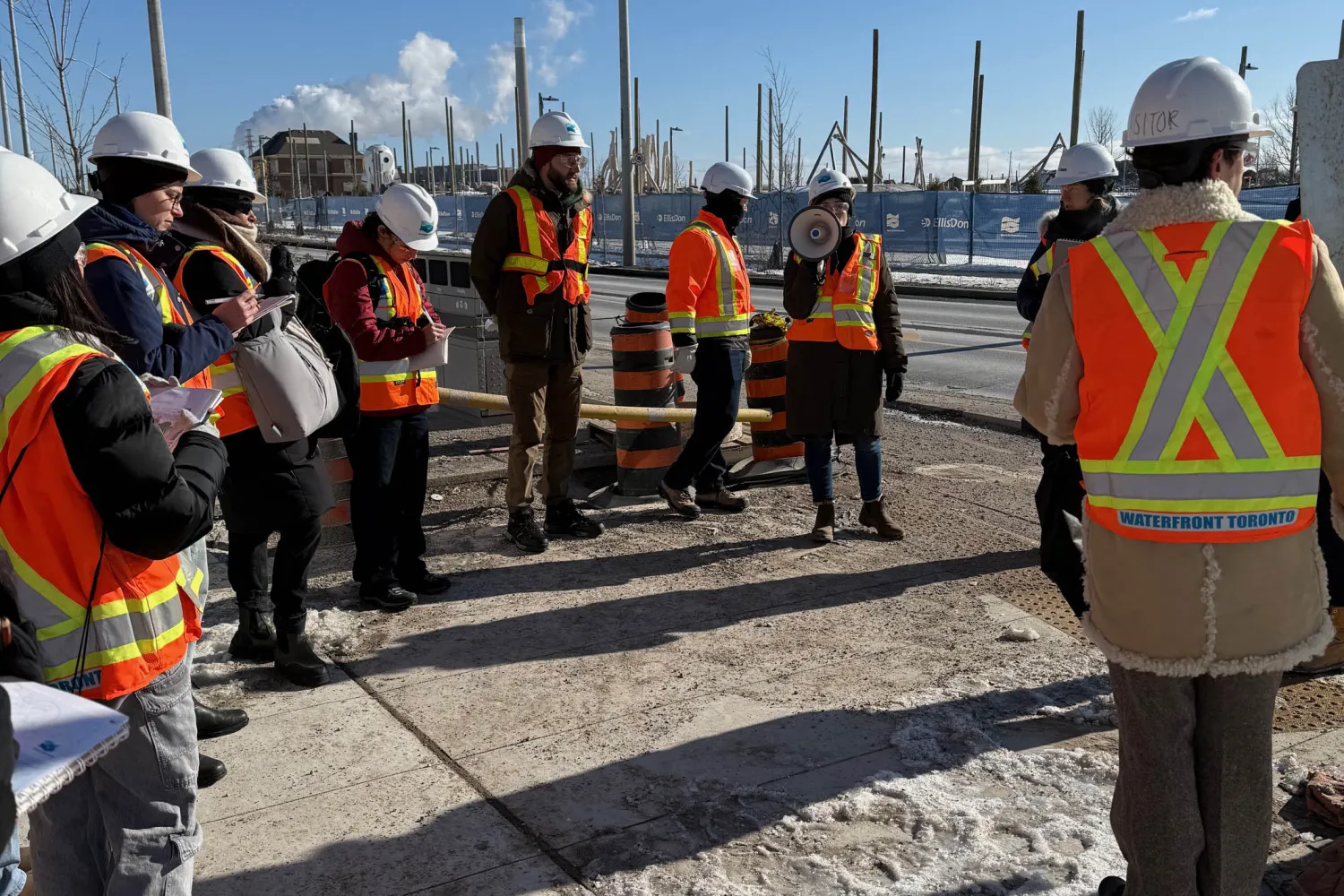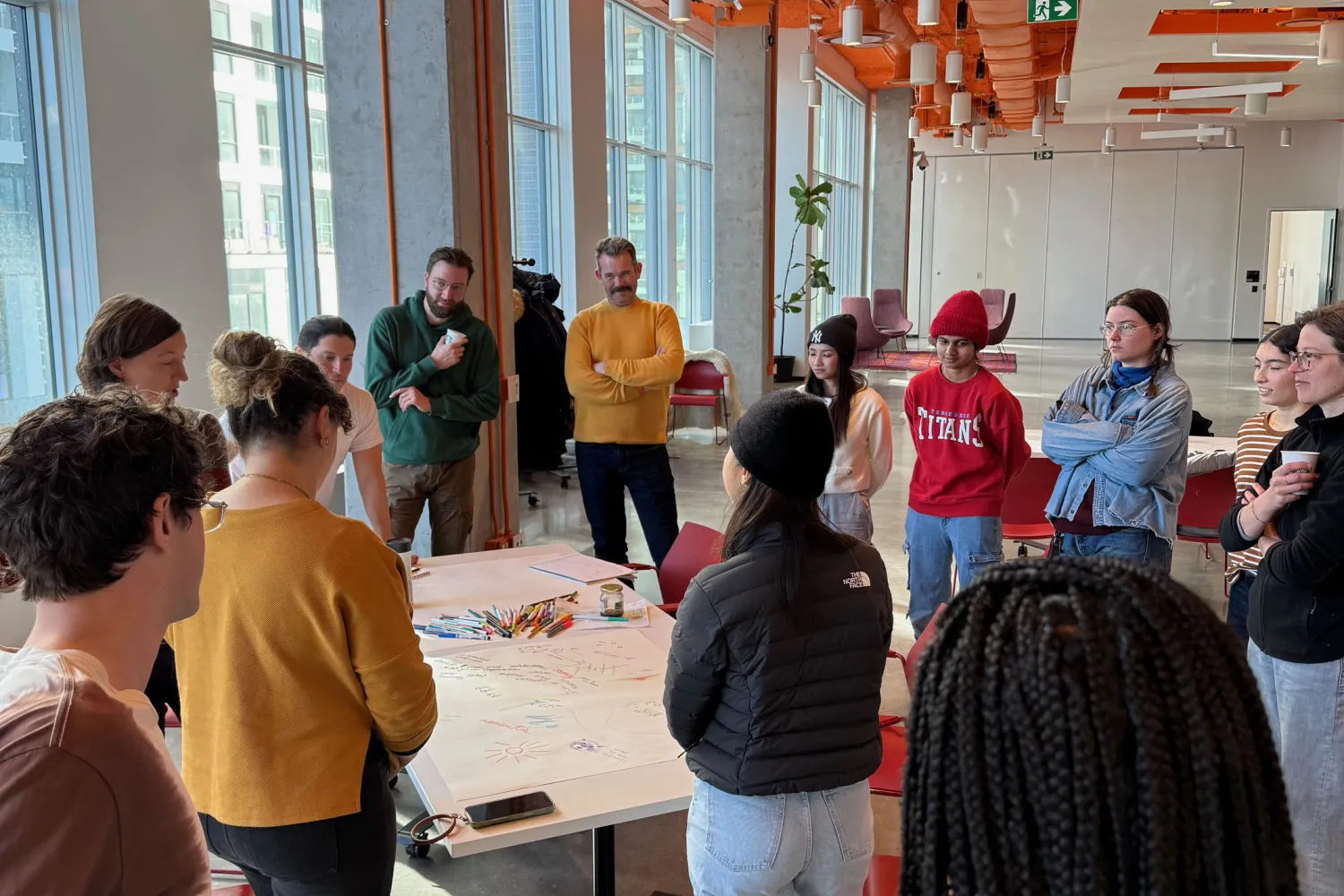On Saturday, February 1, seven OCAD University students took part in Neighbours of the Lake | A Creative Workshop on the Port Lands, an immersive, hands-on learning experience exploring the intersection of social design, cultural research, and urban development. Led by Meichen Waxer, Program Development Specialist, Admissions + Recruitment, in collaboration with Waterfront Toronto and Mexico City's Culturans, the workshop offered a unique opportunity for students to engage with one of the city’s most ambitious infrastructure projects—the Waterfront Toronto Port Lands Flood Protection initiative.
This large-scale redevelopment effort aims to enhance climate resilience, restore natural ecosystems, and reimagine public space along Toronto’s eastern waterfront. The workshop invited participants to consider the evolving relationship between people, place, and urban change, with a focus on how inclusive, sustainable, and creative design practices can shape the future of this rapidly transforming area.
A Transformative Learning Experience
Thanks to a generous scholarship, seven students were selected to participate in the workshop. Through interactive discussions, hands-on design activities, and guided reflection, they were introduced to new perspectives on urban planning—not only as a technical process, but as a catalyst for social and environmental transformation.
“The most valuable lessons learned from this collaboration were the power of participatory design, the importance of fostering interdisciplinary dialogue, and the impact of experiential learning in reshaping perceptions of urban development,” said Waxer. “We hope the students left with a deeper appreciation of how urban planning can serve as a catalyst for social and environmental transformation, while the partner institution gained new perspectives on how to engage the next generation in meaningful city-building efforts.”
The session emphasised co-creation, empathy-driven problem-solving, and design-led approaches to tackling complex urban challenges. Students worked collaboratively across disciplines, engaging with professionals in design, urban planning, and cultural research to explore what it means to be an “active neighbour” in a newly forming community.



